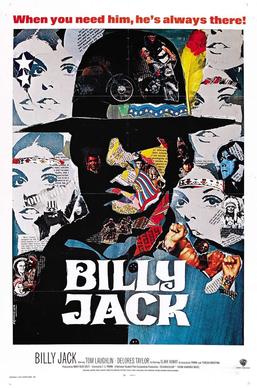Dramatization*
I received a comment on a post a while back, from someone I respect, questioning my taste for a specific music artist. It didn't particularly bother me in the "oh, no, she doesn't like my music" sense. My tastes in music are all over the place, and I have never really met anyone who likes exactly the same things I do. But it did leave me pondering how I might convey the impact that some of these artists had on the period of my youth, which I think we can (mostly) all agree produced a lot of amazing music. I have struggled somewhat to find a foothold, because most of these people have long been relegated to the genre of "music old squares listen to," while many of their contemporaries have been credited with helping to change the world. But at the time, it was all one tapestry of far out groovy heavy sound.
One possible stroke of fortune in my search for common ground is that my wonder years bore some striking similarities to the present time. There were contentious racial, economic, and political divisions in the country and the world. Common people were struggling. It seemed then, as it does to many now, that global industrialization and unbounded capitalist greed would put an end to the American middle class once and for all, and that our country was being divided cleanly between the "haves" and the "trickled down upon." The country was suffering through a long, increasingly unpopular war, and optimism for the future was at an all time low.
The media narrative of the time was almost universally grim. Body counts from the meat grinder that was Viet Nam topped the news nightly. Ghettos burned in cities across America. Churches were bombed. Banks were bombed. The Manson Family unleashed their special brand of helter skelter. American college students were shot dead by the National Guard. One political figure after another found the wrong end of a gunsight. Stories like the Son of Sam killings that would dominate the national media for months in today's climate, struggled to stay on the front page. The Apollo missions were virtually the only national bright spot in this violent, troubled landscape.
They say great art is born in suffering, and the young and rapidly expanding genre of rock produced some lasting and powerful music during these years. You've heard some of it, if only in movies. Bob Dylan, Jimi Hendrix, Jefferson Airplane, CSN (and sometimes Y), CCR, Richie Havens, Edwin Starr, Steppenwolf, and dozens of others produced music that was fresh, relevant, and powerful. They are the soundtrack to the pain, confusion, fear and hope of a generation of Americans. Their message was simple and compelling. Get yours now; the country is burning.
In the midst of all of this, a different movement emerged. Unlike today, this was not a movement of angry and frightened old people. Those were the people in charge. These grass roots were mostly young, overwhelmingly white, and decidedly middle class. Their fathers fought in WWII, or Korea, and went to college on the G.I. Bill. Their mothers were housewives. Their grandparents had struggled through the Great Depression. These people believed in the innate goodness of America and its citizens, but could not delude themselves that what they saw in front of them was the American Dream. Instead of taking to the streets, they turned to each other.
The soundtrack for these people was written and performed by Simon and Garfunkel, Harry Nilsson, Van Morrison, James Taylor, Jackson Browne, Carole King, Jimmy Buffett, and John Denver. That's right, I said John Denver. I dare you not to think of a John Denver song right now. And almost everyone my age liked his music, whether they will admit it or not. I knew people who had his albums right next to their Iron Butterfly.
The music did not usually focus on the burning of America, but it also wasn't about surfing, or sock hops, or fast cars. It was music of the land, the seasons, and the road. Songs about love, and growing up, reflection, and loss. These songs reminded us that every story is a personal story, and that the only way to really make the world a better place is to be kinder to the people around us. It was about the things we valued most about our country and our lives, back then. These were the songs that people would play -- and sing -- at this time of year, outside around a fire, sometimes with a goat on a spit, or a pig roasting in a hole, but always with beer, and wine in skins or screw-top bottles. They were songs you could sing while holding your breath, which was very handy in those days.
Okay, maybe I can't explain it after all. That time is long gone, and no matter how similar this time feels to old farts like me, the world is a much different place now. Wood smoke adds to our carbon footprint, and I wouldn't even begin to know where to find a goat these days. Whole Foods, maybe? Young people have more serious things to worry about than "finding themselves," like whether the corporate recruiters are going to find the toga party pictures that their friend posted on her Facebook page. Taking to the road is something only homeless people and illegal immigrants do.***
I guess I will have to be content to know that the people who didn't live it will someday struggle to explain Wilco, or Coldplay, or whatever music touched their heart when it was still tender. And every time I hear
Everybody's Talkin',
Moondance,
Bridge Over Troubled Water, or
You've Got a Friend, I will unabashedly sing along. Singing makes us feel better, right?
* The stuff in the picture is a mixture of basil, oregano, and mint. Seriously. I grow it myself. I wouldn't even know where to look for that name brand weed the kids smoke these days.**
** Okay, so that's not precisely 100% true. I do work at a college. But it may as well be true. The last thing I need is to be even more confused, forgetful, lethargic, and hungry than I am already.
*** Isn't this really what the Tea Party is up in arms about? The world got more complicated without their permission? After all, these are many of the same people. They are just old, sober, and frightened now.

























